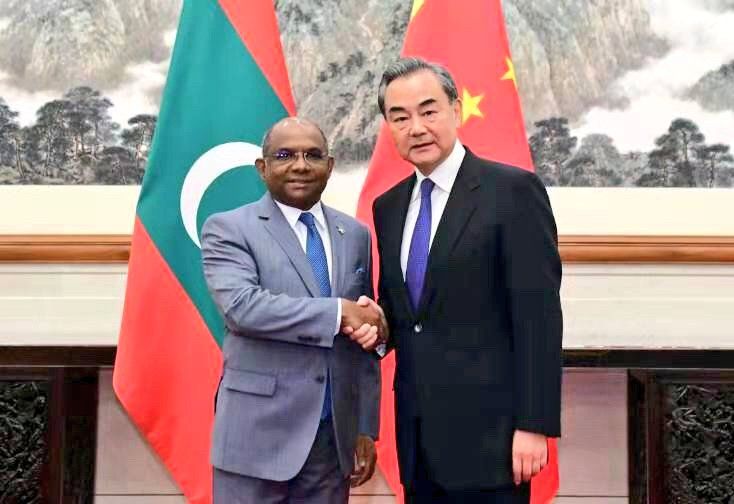‘Political trust’ restored between China and Maldives
The Chinese ambassador hailed Foreign Minister Shahid’s recent visit to Beijing.

29 Sep 2019, 09:00
Foreign Minister Abdulla Shahid’s recent visit to Beijing has restored trust between China and the Maldives, Chinese Ambassador Zhang Lizhong declared on Wednesday.
The current administration came to power after criticising debt owed to China – which financed the former administration’s flagship projects – and quickly moved to repair relations with its geopolitical rival India. The foreign minister’s maiden visit to China came nine months after assuming office.
“This visit has deepened the political trust and Belt and Road cooperation between the two sides which will promote the China-Maldives future-oriented all-round fraternity with cooperative partnership to a whole new level,” Ambassador Lizhong was quoted as saying during a reception held at the Kurumba Resort to mark China’s 70th National Day.
“China-Maldives relationship is now standing at a new starting point,” he added.
Become a member
Get full access to our archive and personalise your experience.
Already a member?
Discussion
No comments yet. Be the first to share your thoughts!
No comments yet. Be the first to join the conversation!
Join the Conversation
Sign in to share your thoughts under an alias and take part in the discussion. Independent journalism thrives on open, respectful debate — your voice matters.




